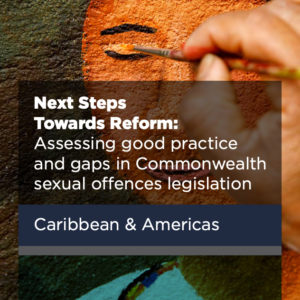In Dominica, sexual offences are found in the Sexual Offences Act 1998 (SOA), amended in 2016 by the Sexual Offences (Amendment) Act 2016, which updated some of the provisions in accord with good practice.
The 2016 reforms included criminalising all forms of penetration by penis, object and other body parts, recognising aggravated assaults, creating a new offence of sexually grooming a child and removing many moralistic and inappropriate terms from the legislation. Some aspects of the legislation do not meet good practice however. For example, under the SOA marital rape is treated less seriously than non-spousal rape, while offences of penetration with objects and of non-genital body parts are treated less seriously than penile penetration despite evidence indicating the harm suffered by the complainant can be equally devastating.
The revisions did not repeal the criminalisation of sexual activity with a person with an intellectual disability regardless of consent and left in place outdated, derogatory terminology. The age of consent in Dominica is 16 for heterosexual sexual activity. There are no close-in-age defences to avoid criminalising young people and children who engage in consensual sexual activity with their peers.
‘Buggery’, whether between people of the same or different sex, continues to be criminalised. The revisions in 2016 increased the penalty for this offence. ‘Buggery’ is most associated with same-sex sexual activity. Criminalising same-sex sexual activity is a breach of international human rights law. Laws that criminalise consensual same-sex sexual activity, such as ‘buggery’ and ‘sodomy’, should be repealed and all non-consensual sexual acts, including anal ‘rape’, should be included in the standard sexual assaults provisions, such as ‘rape’ and ‘sexual assault’, as well as in child sexual offences. All of these crimes should be gender-neutral.
Dominica is a state party to relevant international and regional human rights treaties, including the Inter-American Convention on the Prevention, Punishment, and Eradication of Violence against Women (Convention of Belém do Pará), the UN Convention on the Elimination of All Forms of Discrimination against Women, the Convention on the Rights of the Child, the Convention on the Rights of Persons with Disabilities and the International Covenant on Civil and Political Rights. It has not ratified the Convention against Torture and Other Cruel, Inhuman or Degrading Treatment or Punishment.
Read more about the criminalisation of LGBT people in Dominica.
The full assessment of Dominica is available here.



